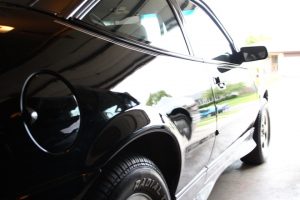Charlotte Personal Injury Attorney Matt Arnold answers the question: “Should I trust the insurance adjuster?”
Though it’s something few people think about when signing up for car insurance, it happens all the time. People get involved in accidents while driving someone else’s vehicle. The question then becomes, what happens next? Who is liable for the damages? Will the policy of the driver kick in? What about the owner of the vehicle? To learn more, keep reading.

A commonly relied upon concept for determining whether insurance coverage applies concerns the concept of permissive use. This says that coverage will apply only when a driver has the permission of the named insured to use the vehicle and the use of the vehicle occurs within the scope of that permission.
The permission here doesn’t have to be explicit, it can instead be implied or understood. That means you wouldn’t need to prove that you said something like “I hereby give you permission to use my vehicle”, for permissive use to be found. Handing the keys over to a friend or family member is usually enough.
Another factor to consider is that even if permission was granted, did the use exceed the scope of the permission? For instance, if I granted permission to take my car down the street to the store and you drove to Alaska, that could be said to have exceeded the scope of my original permission, potentially barring coverage.
Even if your vehicle is found to have been used with your permission, there are still cases where coverage might not apply. One common example is if the car is being used for business purposes. If your friend or family member was working at the time, it’s quite likely that the insurance company would deem this as an exception and refuse to extend coverage.
Another common example is if you failed to exercise proper judgment in who you gave permission to. For instance, if you allowed an inexperienced or unlicensed driver to get behind the wheel and he or she is then involved in an accident, chances are your insurance will deny the claim. The same is true if you knowingly allow an impaired or intoxicated driver to use your car. Even though it may be permissive use, your insurance may not cover it.
Another case where your vehicle’s coverage may not apply is when the person involved in the accident has been specifically excluded from your policy. You might do this if one of the people in your house has a particularly bad driving record and including them on your policy would raise your rates. You need to understand that doing so could have an important impact on you if that person later takes your vehicle for a spin, with or without permission. If a wreck occurs when an excluded driver is behind the wheel, it’s possible that you car insurance may not cover the accident.
Finally, it goes without saying that another time when your insurance may not cover an accident involving your vehicle occurs when it has been stolen. This is a clear example of a non-permissive use of the vehicle, as you clearly did not tell the thief to go ahead and take your car. In these cases, it is very rare for the vehicle’s insurance to cover any damages caused as a result of an accident.
If you or someone close to you has been injured, contact an experienced personal injury attorney today who can help you receive the compensation to which you may be entitled. Contact Arnold & Smith, PLLC for a free consultation, call at 704-370-2828 or click here for additional resources.
About the Author
Mr. Arnold was raised in Charlotte, where he graduated from Providence Senior High School. He attended Belmont Abbey College, where he graduated cum laude, before attending law school at the University of North Carolina at Chapel Hill on a full academic scholarship.
A board-certified specialist in the practice of Family Law, Mr. Arnold is admitted to practice in all state courts in North Carolina, in the United States Federal Court for the Western District of North Carolina, in the North Carolina Court of Appeals and Supreme Court, and in the Fourth Circuit United States Court of Appeals in Richmond, Virginia.
In his free time, Mr. Arnold enjoys golfing and spending time with his wife and three children.
Source:
https://www.esurance.com/info/car/car-insurance-follows-the-driver-myth
Image Credit:
http://www.freeimages.com/photo/black-car-1450351
See Our Related Video from our YouTube channel:
https://www.youtube.com/user/ArnoldSmithPLLC/videos
See Our Related Blog Posts:

